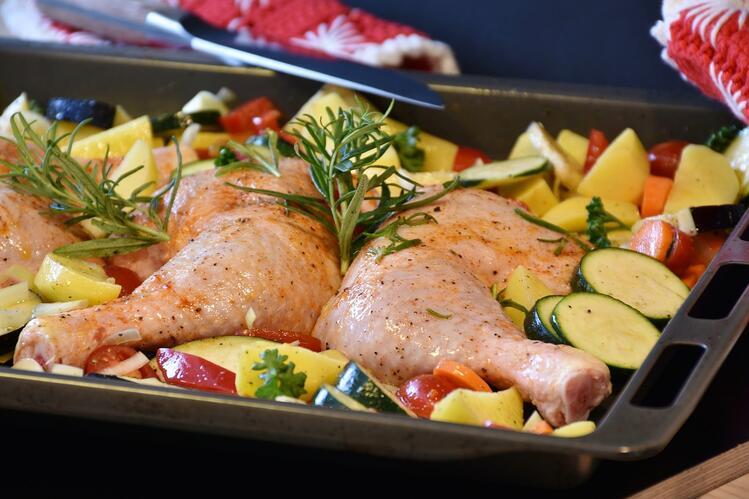University of Illinois partners with Perdue Farms on food safety project

URBANA, Ill. – The University of Illinois is partnering with Perdue Farms and Cornell University on a project to study policy and management approaches to further reduce Salmonella cases linked to raw poultry.
The research project, "Simulation and Modelling to Rationally Target Salmonella Control Strategies in Processing Plants,” is led by Matthew Stasiewicz, assistant professor of applied food safety in the Department of Food Science and Human Nutrition, part of the College of Agricultural, Consumer and Environmental Sciences at U of I. The project is fully funded by Perdue Farms through January 2024.
This collaborative effort aims to build risk assessment models that will allow Perdue and other poultry producers to optimize Salmonella control strategies in their supply chain by enhancing their lotting and intervention tactics. These strategies could then be applied by other poultry processors and considered by the USDA’s Food Safety and Inspection Service (FSIS) to improve food safety in the U.S. supply chain.
“Perdue is already generating important data on Salmonella control strategies from improved live bird management, through better harvesting and processing controls – data that would be difficult for academics to generate at scale, under industry-relevant conditions,” Stasiewicz states. “This research project will allow us to apply modern analytics and build risk-assessment models from their data so we can identify the most effective new management strategies and rationally prioritize those that should work best for risk management.”
The project comes amid a national push to model a Salmonella performance standard more focused on protecting public health than simply reducing prevalence. Since 2015, when the current performance standard for chicken parts went into effect, the industry has reduced Salmonella prevalence by 65% and approximately 95% of large establishments meet the FSIS performance standard for Salmonella on chicken parts, like wings, breasts, and drumsticks. However, cases of Salmonella attributed to poultry have not declined at the same rate, possibly because Salmonella bacteria and levels most likely to cause human disease have not been specifically targeted. Therefore, there is a need to consider improved standards, and better ways to meet those standards, to continuously improve food safety.
The research will further advance Perdue’s extensive food safety practices. The company’s current multi-faceted approach to food safety begins at the farm, focusing on what farmers can do to prevent and control Salmonella and Campylobacter. Perdue maintains a stringent Pathogen Control Program to limit pathogen levels throughout the entire harvest process. The company continues to evaluate and implement additional interventions to ensure that best practices are used to reduce Salmonella levels in poultry.
“Perdue Farms is proud to support meaningful research into Salmonella control strategies as we continue to learn and adapt our approach to food safety from farm to fork,” says Bruce Stewart-Brown, Perdue Farms Senior Vice President of technical services and innovation.
“Heightened food safety regulatory standards backed by science are a priority for our family-owned company, and we are confident these efforts will lead to improvements in public health and a reduction in recall risk for companies in the meat and poultry industry over time. Ultimately, our aim is to provide consumers with the safest possible products and reduce Salmonella contamination throughout the poultry supply chain. Partnership – including with industry, academia, regulators, and consumer advocates – is the only way we get there,” he adds.
Perdue Farms has a long history of commitment to continuously improving product and operational safety and exceeding related regulatory standards. Specifically, Perdue is a leader in embracing Process Verified Programs and publicly supports expanding the National Poultry Improvement Program.
“We are excited to partner with Perdue to further facilitate translation of our foundational work on Salmonella and in pathogen transmission in other commodities, such as produce, to further develop rational and risk-based food safety systems for the poultry industry,” says Martin Wiedmann, Gellert Family Professor of Food Safety, Cornell University.